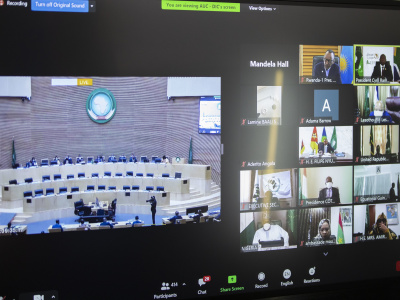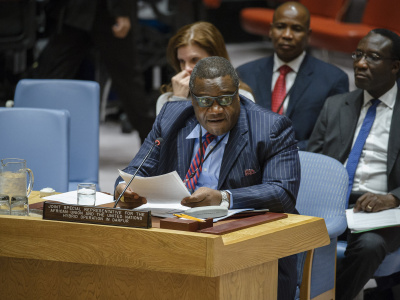
Election watch: The race for African Union top posts
What role will the new reforms – particular those related to gender parity – play in the lead up to next AU Commission elections?
This page is also available in French
Summary
The year 2021 holds great promise for the African Union (AU) leadership, marking the first elections for the AU Commission (AUC) positions since the Union’s reform process began in 2017. The election is, therefore, a stress test for the new recruitment, selection and election process for the incoming AU Commissioners as well as ensuring the key principle of gender parity.
This brief discusses the role that the AU’s institutional management reforms will play in the upcoming elections – especially when it comes to meeting the key requirement of gender parity.
The election process began in September 2020, when AU member states submitted their list for candidates to be nominated to the AUC. The incumbent Commission’s Chairperson, H.E. Faki Mahamat, is also up for re-election, although this is not an automatic guarantee: he will need a two-thirds majority vote to keep his post. The new rules require the top AU leadership to display gender parity, requiring that if the AUC Chairperson is a man, his Deputy should be a woman – and vice-versa. Most of the candidates for the role of Deputy AU commissioner are women (five out of eight) but, to date, no woman has held this role.
However, only 29% of the total nominees for the position of the six AU commissioners were women, with only eight becoming part of the twenty-five candidates who made it to the final shortlist – ringing, once again, the alarm bell on the need for gender parity in the AUC election process.
The composition of the next AU commission will play a pivotal role in shaping and implementing Africa’s continental policy priorities for the next four years.
Photo courtesy of Paul Kagame via Flickr




